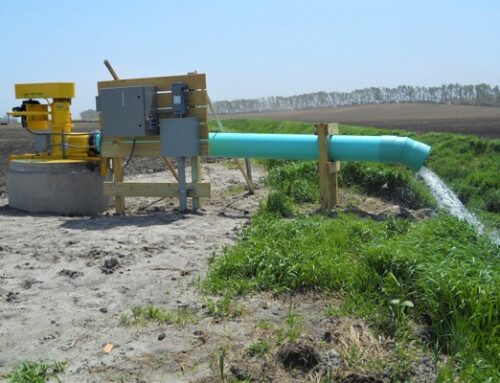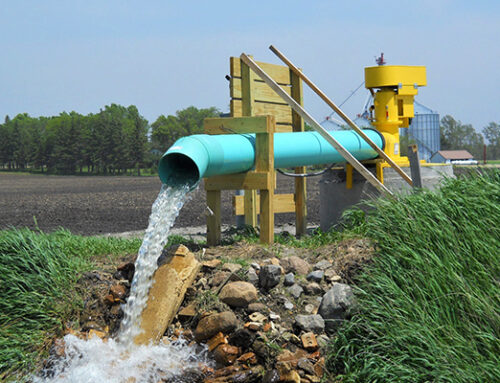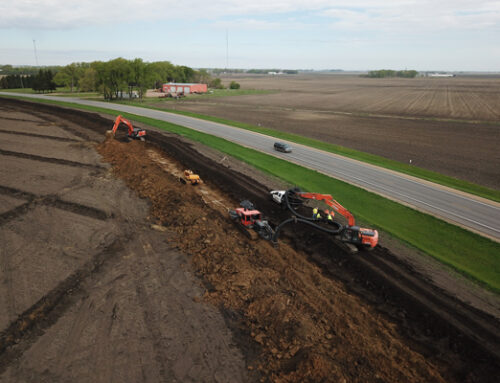Water management is critical for successful farming. Ag drainage systems installed by a professional ag drainage company play a crucial role in maintaining the delicate balance.
This blog post will unravel the transformative benefits of these systems and how they significantly boost crop yields, reshaping the landscape for farmers.
The Role of Drainage Systems and an Ag Drainage Company
Agricultural drainage systems are the unsung heroes of thriving crops. Here’s a breakdown of their contributions:
Enhanced Soil Aeration:
Well-drained fields mean improved soil aeration. Excess water hampers gas exchange between plant roots and the atmosphere. Ag drainage systems, including field tiling, combat waterlogged conditions, ensuring roots access oxygen efficiently. This fosters robust root development and overall plant health.
Prevention of Waterlogging | Ag Drainage Company:
Waterlogging, the bane of crops, stifles root growth and nutrient absorption. Vigilant against this threat, Ag drainage companies keep fields balanced in moisture content. This saves crops from drowning and wards off harmful pathogens thriving in waterlogged conditions.
Nutrient Preservation and Availability:
Beyond water removal, adequate drainage preserves essential nutrients. Excess water can wash away vital nutrients, leaving the soil barren. Ag drainage systems prevent nutrient loss, maintaining an optimal water-to-soil ratio for robust crop growth.
Field Tiling: The Backbone of Agricultural Drainage
Precision in Water Distribution:
Field tiling strategically places pipes beneath the soil to guide water efficiently. This method allows farmers to control water distribution precisely. Directing water away from saturated areas ensures even moisture distribution, creating a harmonious crop environment.
Year-Round Accessibility | Ag Drainage Company:
Field tiling provides benefits throughout the year. Drainage systems use this method to prevent water accumulation in wet seasons and aid moisture retention in dry spells. This adaptability ensures fields remain conducive to cultivation regardless of weather fluctuations.
Long-Term Sustainability:
Field tiling isn’t just a quick fix; it’s an investment in long-term sustainability. It prevents soil erosion and compaction, maintaining soil integrity. Farmers experience immediate boosts in crop yields and safeguard their land’s productivity for years to come.
Also Read – The Science Of Field Tiling in Minnesota: How It Works?
The Ripple Effect: Crop Yield Improvement
The benefits of well-planned drainage systems extend beyond individual fields, creating a ripple effect that improves crop yield.
Disease Mitigation:
Excessive moisture increases crop susceptibility to diseases. Ag drainage systems act as a natural deterrent, draining excess water and preventing the proliferation of harmful pathogens, significantly contributing to disease prevention and, consequently, crop yield improvement.
Optimized Plant Growth Conditions | Ag Drainage Company:
Ag drainage systems ensure conditions align closely with crop requirements. With enhanced aeration, nutrient availability, and controlled moisture levels, plants can divert more energy towards productive processes like flowering and fruiting, directly translating into higher yields.
Work with a Professional Ag Drainage Company for Agricultural Success
In agriculture’s dynamic world, where every harvest counts, well-planned drainage systems are indispensable. From enhanced soil aeration to disease prevention and long-term sustainability, the benefits echo through the entire farming ecosystem. Embracing the transformative power of Ag drainage becomes not just a choice but a cornerstone for cultivating success in every harvest.
Hodgman Drainage stands out as an ideal ag drainage company due to our unparalleled expertise and commitment to optimizing agricultural landscapes. With a proven track record, innovative solutions like field tiling, and a dedication to long-term sustainability, Hodgman Drainage is the go-to partner for farmers seeking reliable and effective drainage systems.



